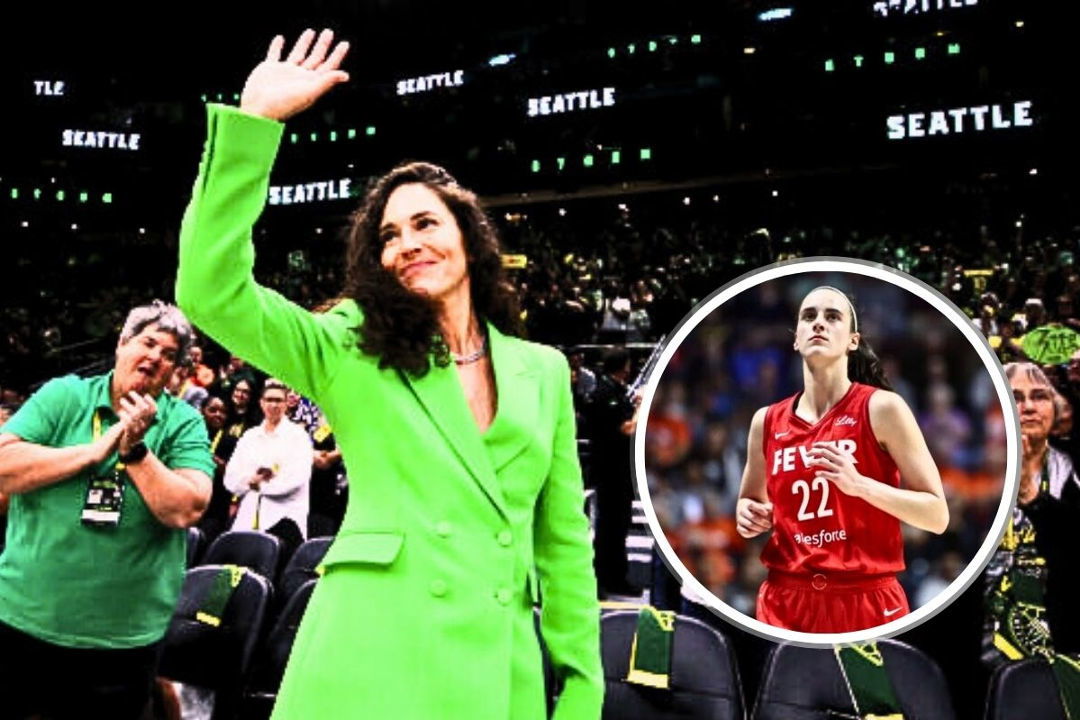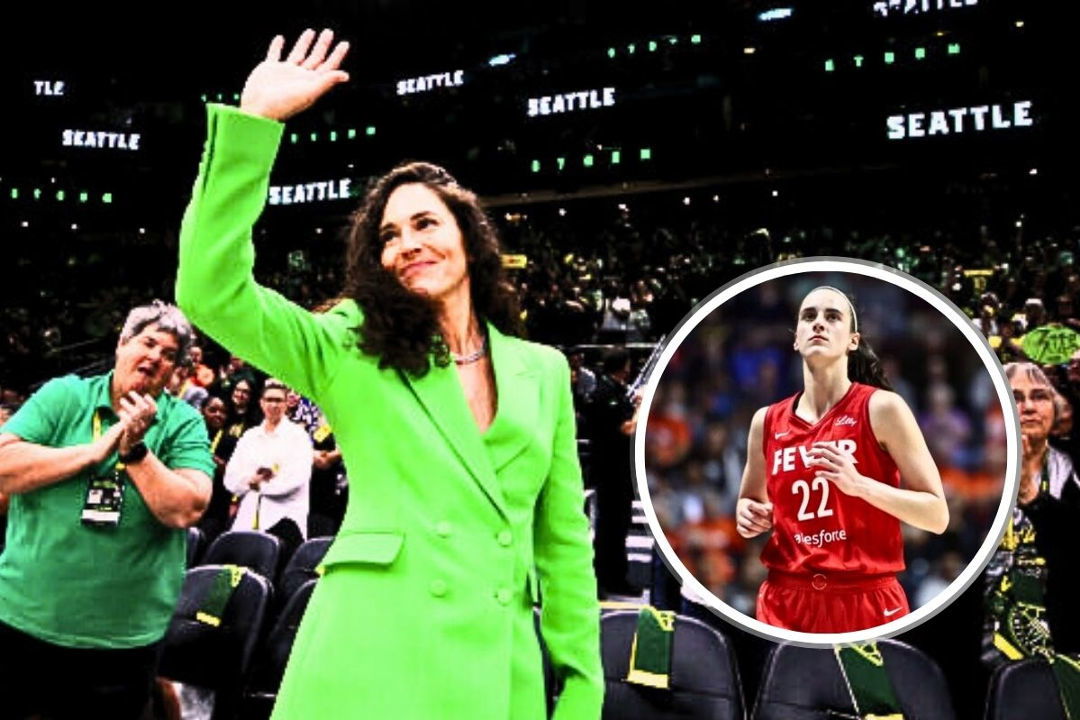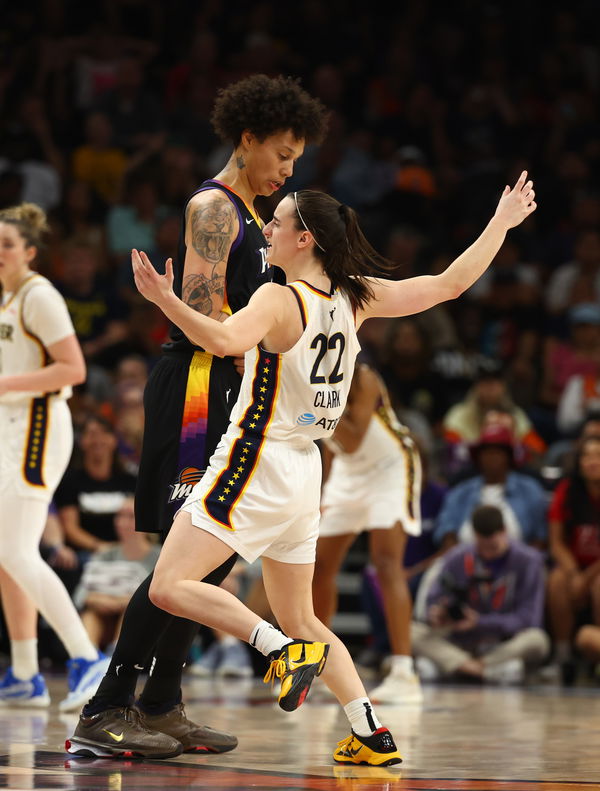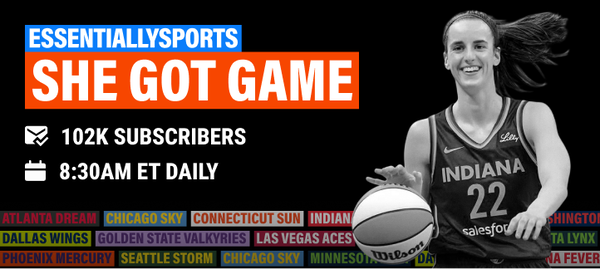



It starts with a laugh. A room full of athletes, a podcast mic hot with familiarity, and a question from Dearica Hamby that could have passed as something casual—if you weren’t listening closely. Sue Bird was. And though her answer meandered, skipping names and steering clear of headlines, it landed in the center of a storm that’s been swirling around the WNBA for over a year. She didn’t mention Caitlin Clark. She didn’t need to.
Watch What’s Trending Now!
Because when Bird talked about how fast misinformation spreads—and how one specific rumor caught fire—her words pointed unmistakably in one direction. “The targeting one is really the one that got the most run,” she said. And in 2024, there was only one rookie the world fixated on that way.
The phrase “targeting rookies” didn’t originate from a WNBA coach or player. It was born—like many modern controversies—on Twitter, now X. It was May 21, 2024, when the account @DuckZone503 tweeted: “This the second clip I see of Caitlin Clark getting bullied in the WNBA now.” And that was the match. Within days, Barstool Sports chimed in: “Caitlin Clark continues to be bullied but the storylines and WNBA viewership keep going up.”
Soon, it was everywhere. On debate shows, in newsletters, in New York Post headlines like, “Caitlin Clark needs to be protected as WNBA foes try bullying her.” The LA Times ran reader letters asking, “Why must we beat up new players?” and Yahoo described “aggressive physicality” with whispers of race and jealousy in the subtext. One YouTube highlight read like tabloid horror: “Caitlin Clark Can’t ESCAPE This WNBA Bully’s Harassment.”
But Bird, cool-headed and clear-eyed, had a different perspective. On Straight to Cam with Cameron Brink, she said: “It’s been crazy to see, especially last year… just like one person on Twitter’s opinion can just spread such a way where all of a sudden… you’re turning on whatever channel you watch and they’re saying the same narrative. The targeting one… it just blew up and became the truth for a lot of people. It was just like, targeting, what? But then it just blew up and became the truth for a lot of people. That’s not going to change, sadly. It’s the world we live in. But what we can do is have shows like yours, shows like I’m doing, where we can just tell the truth, and the truth to those stories.”
Cameron Brink, Clark’s fellow rookie (in 2024) and host of the podcast, offered her own brush with public perception. She’s been out since June 2024 with a non-contact ACL and meniscus tear—a heartbreak she confirmed happened during her 15th game against the Sun. At the time, she was averaging 7.5 points, 5.3 rebounds, and 2.3 blocks per game. Yet even with her injury, the storyline refused to budge. In fact, Brink said that due to the narratives swirling around the league, her injury became fodder to fuel the rumors on the podcast: “People would even come up to me and be like, ‘You poor rookie. They hurt you.’ I’m like, no. Unfortunately, my knees said ‘F—you.’ That’s why I’m not playing.”
It’s not malice, Brink implies—it’s misinformation. And it’s sticky.
Sue Bird’s take on rookie targeting feels right, but Caitlin Clark’s 2024 stats tell a fuller story.
Bird sees the same pattern: opinion transforming into “truth” by sheer volume. “That’s not going to change… it’s kind of the world we live in,” she said. “But what we can do is have shows like yours… where we can just tell the truth.”
It was vintage Sue Bird. Measured, deflective, and careful with what she didn’t say. Yet her message pulsed with clarity: the narrative around rookie targeting didn’t come from reality—it came from repetition. And by the time it was everywhere, it was too late to pull back.

USA Today via Reuters
Jun 30, 2024; Phoenix, Arizona, USA; Indiana Fever guard Caitlin Clark (22) against Phoenix Mercury center Brittney Griner (42) during a WNBA game at Footprint Center. Mandatory Credit: Mark J. Rebilas-USA TODAY Sports
But maybe, Bird suggests, the counter is not silence, but story. Real stories. Not made-for-Twitter ones. Clark, of course, never asked for the bodyguarding. In fact, she bore the weight of it and said, “This is a very physical game, and you’re going to get pressure, this is professional basketball. It is what it is, honestly.” But it was all for naught, as whether it was Chennedy Carter’s infamous shoulder check or the constant scrutiny of every play, her debut season was dissected more for optics than for basketball. A sport became a saga. A rookie became a rallying point.
However, it’s not fair to say she didn’t face a lot of fouls. In fact, according to writer Vaughn Hajra’s analysis of flagrant fouls in the 2024 season, players fouling Caitlin Clark accounted for 17.1% of all flagrants. 11.4% of all flagrant fouls were by Chicago Sky players fouling Clark. In total, of the 34 flagrants in the 2024 season, Clark was on the receiving end of 6 of them. Even now, in 2025, the conversation lingers. And while Bird didn’t drop Clark’s name, she pulled back the curtain on how those conversations begin—and how they calcify. You could call it sidestepping. Or you could call it precision.
Because some things hit harder when you don’t swing at them directly, and some truths land cleanest when you leave just enough air between the words.


